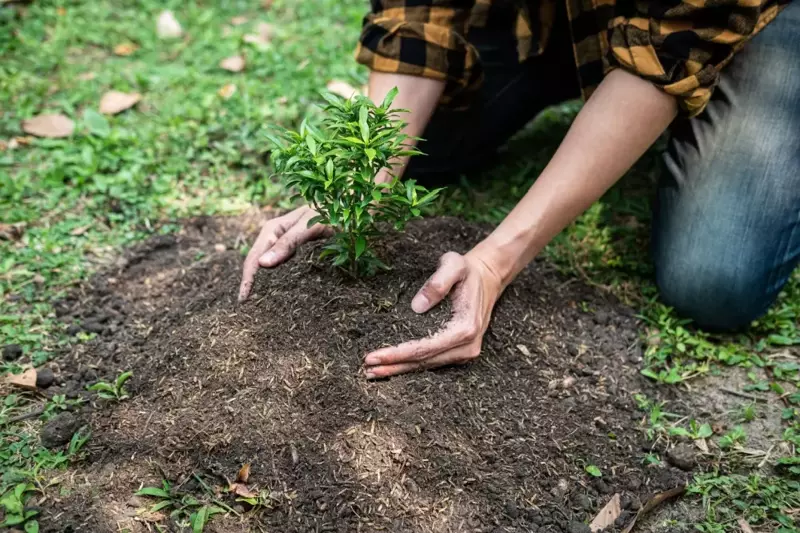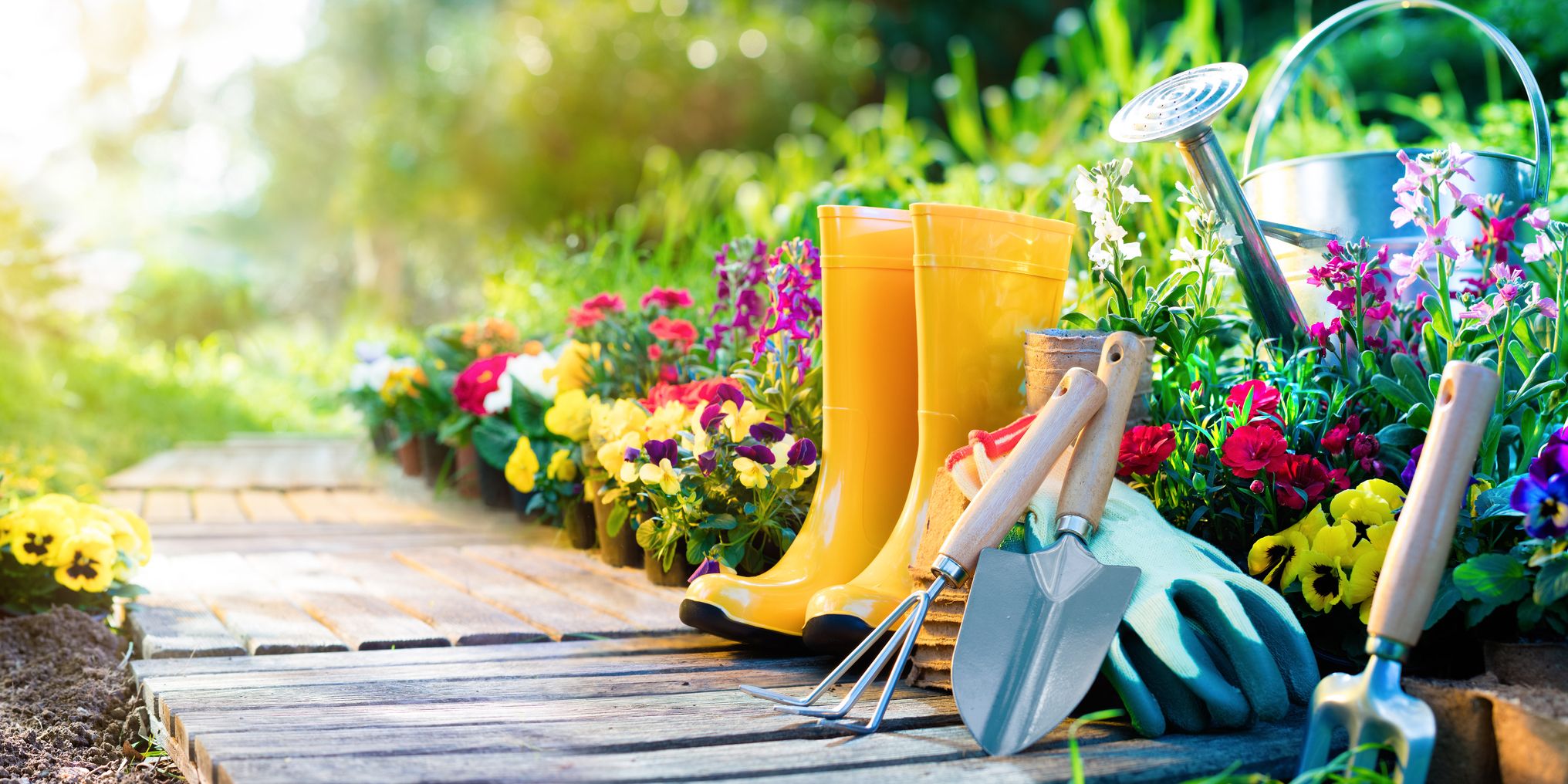Sustainable Gardening Practices for an Eco-Friendly Yard
Wiki Article
Unlocking the Conveniences of Gardening: A Thorough Check Out the Different Types and Their Influence On Well-Being
Exploring the diverse advantages of horticulture discloses a spectrum of practices that significantly improve private health. From veggie and natural herb gardens to container and elevated bed setups, each kind supplies distinct benefits that extend beyond plain growing. These activities not only foster physical wellness through active involvement however likewise add to psychological wellness by alleviating stress and anxiety and motivating mindfulness. As we check out these varied horticulture strategies, it comes to be noticeable that their effect can resonate on individual, social, and environmental levels, triggering a closer look at exactly how these links create a natural story of holistic health.Kinds of Horticulture

Flower horticulture, an additional prominent group, emphasizes the aesthetic allure of cultivated blooms. This kind can enhance landscapes and promote biodiversity by bring in useful pollinators. In a similar way, natural herb horticulture involves growing aromatic and cooking plants, contributing both to cooking and all-natural remedies.
Container gardening offers adaptability, allowing people with limited space to participate in horticulture by utilizing pots and planters. This method is especially prominent in urban settings. Elevated bed gardening, on the various other hand, includes developing elevated plots that boost soil drain and availability, making it much easier for gardeners to handle their plants.
Lastly, community horticulture promotes collaboration amongst people in shared spaces, advertising social communication and cumulative responsibility. Each sort of horticulture offers unique purposes and deals with various choices, making gardening a functional task that can be tailored to specific requirements and atmospheres.
Mental Health And Wellness Advantages
Participating in various kinds of horticulture not only yields tangible benefits such as fresh produce and attractive blossoms but also supplies considerable mental health and wellness advantages. Research suggests that horticulture can be an effective device for minimizing tension, anxiousness, and clinical depression. The act of having a tendency to plants and growing a garden promotes a feeling of purpose and accomplishment, which can enhance overall emotional well-being.Additionally, horticulture encourages mindfulness, as it needs people to focus on today moment, whether it be growing seeds or supporting growth. This mindfulness technique can result in lowered rumination and boosted state of mind stability. The exposure to natural surroundings throughout horticulture has actually also been connected to improved cognitive functioning and lowered feelings of fatigue.
Social communication plays an important function in mental health, and area gardening initiatives give possibilities for individuals to link with others, cultivating a sense of belonging. The shared experience of horticulture can grow friendships and support networks, additionally reinforcing emotional strength.
visit our website
Physical Health Benefits
Several people might not understand that horticulture likewise provides considerable physical health and wellness benefits. Taking part in gardening activities calls for a variety of physical movements, consisting of flexing, training, excavating, and planting, which jointly add to better stamina, adaptability, and endurance. These activities can improve cardio health and wellness by advertising a raised heart price, thereby lowering the risk of heart illness.Additionally, gardening can function as a moderate-intensity workout, aiding people attain recommended physical activity degrees. Researches indicate that routine participation in gardening can melt significant calories-- roughly 200-400 calories per hour, depending upon the intensity of the tasks carried out. Such calorie expenditure is advantageous for weight management and general metabolic wellness.
Additionally, exposure to sunshine throughout gardening can help with the synthesis of vitamin D, which plays an important function in keeping bone wellness and sustaining immune feature. The act of gardening usually involves functioning with dirt, which has actually been linked to prospective mental and physical health advantages due to the existence of helpful bacteria.
Social Links Via Horticulture
The public facets of gardening foster purposeful social connections amongst people. Area gardens, particularly, work as lively hubs where individuals from diverse histories come with each other, growing not only plants however additionally connections. These common rooms encourage partnership, permitting individuals to trade understanding, skills, and resources, thereby boosting their gardening experience and fostering a feeling of belonging.Interaction in gardening tasks often brings about the formation of friendships and assistance networks. Participants often join for usual objectives, such as growing periods, harvest events, or educational workshops, which enhance social connections and produce a feeling of community. Such communications can relieve feelings of isolation and enhance psychological well-being, as individuals discover friendship and camaraderie in common undertakings.

Environmental Effect of Horticulture
Gardening dramatically adds to ecological sustainability in several means. Among one of the most significant advantages is the improvement of biodiversity. Home gardens provide vital environments for numerous varieties, including pollinators such as and butterflies, which are necessary for ecosystem wellness. By cultivating varied plant varieties, gardeners can create a well balanced environment that supports both vegetation and fauna.
Furthermore, gardens play a crucial function in water conservation. Tactical landscapes, consisting of native plants and xeriscaping, reduce water usage and protect against More Help drainage, therefore protecting neighborhood waterways from pollution.
Final Thought

In verdict, gardening acts as a multifaceted activity that improves health across different domains. The varied kinds of gardening-- including vegetable, flower, natural herb, container, and raised bed-- contribute to psychological and physical health, foster social links, and promote environmental sustainability. By participating in horticulture practices, people can experience better lifestyle while likewise sustaining area bonds and eco-friendly health and wellness. Inevitably, the alternative benefits of gardening highlight its relevance as a crucial element in improving overall wellness.
Report this wiki page